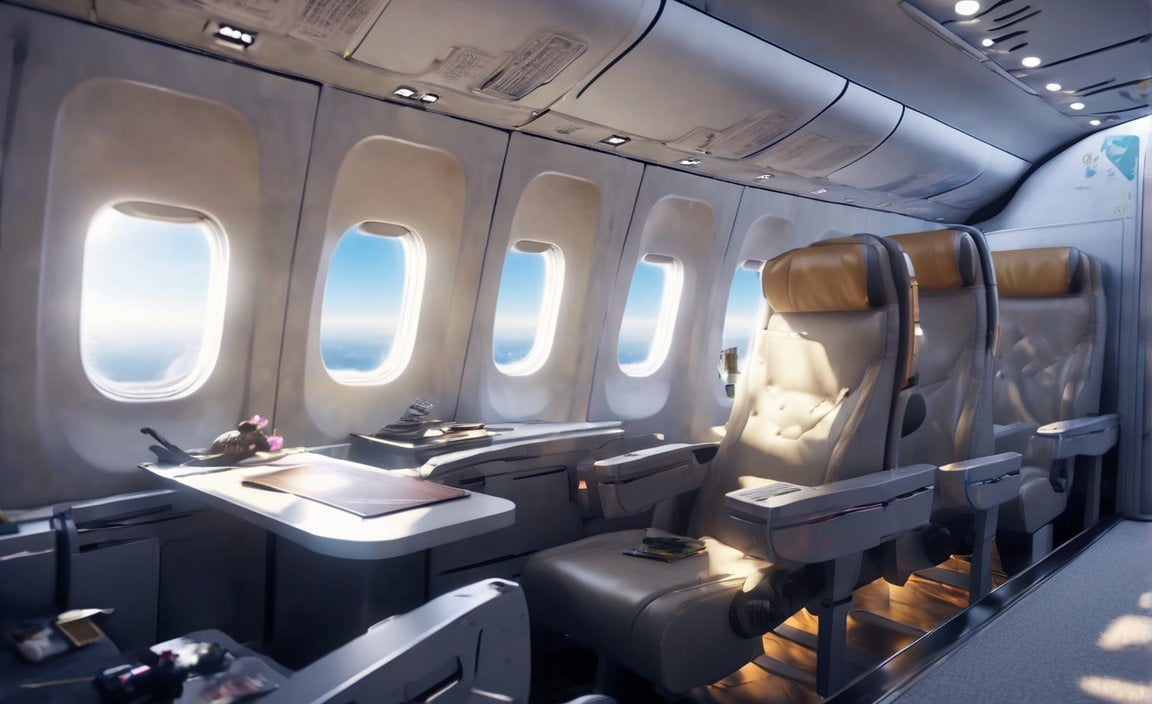Exploring the Advantages & Disadvantages of Air Travel
Air travel has become an integral part of our lives, offering unparalleled benefits and convenience in an increasingly interconnected world. In this article, we delve into the advantages and disadvantages of air transportation, as well as highlighting the distinguishing characteristics of this mode of travel. Whether you’re a frequent flyer or considering taking to the skies for the first time, understanding the pros and cons of air travel will help you make informed decisions about when it’s the best option for your journeys.
Key Takeaways:
– Advantages
1. Speed: Air travel is the fastest mode of transportation for long distances, especially beneficial for business travelers.
2. Efficiency: Air travel facilitates global connectivity and economic growth.
3. Safety: Advancements in technology and strict regulations ensure passenger safety.
4. Comfort: Flying offers amenities like wider seats, more legroom, and in-flight entertainment.
- Disadvantages
- Cost: Air travel can be expensive, especially internationally or during peak seasons. However, there are ways to save money.
- Environmental Impact: Air travel contributes to greenhouse gas emissions and climate change awareness is increasing.
Advantages and Disadvantages of Air Travel

Air travel has become increasingly popular over the years, offering numerous benefits for travelers. However, it is important to consider both the advantages and disadvantages of air travel before making any decisions. Let’s delve into some key points to help you make an informed choice.
Advantages of Air Travel
Speed: One of the greatest advantages of air travel is its speed. When it comes to long distances, air travel is unbeatable. It allows you to reach your destination in a fraction of the time compared to other modes of transportation. Whether you’re on a business trip or a vacation, air travel ensures you arrive quickly and efficiently.
Efficiency: Air travel plays a vital role in international trade and globalization. It connects people and goods across the globe, opening up opportunities for economic growth. With a well-established network of airports and airlines, air transport is the backbone of global connectivity, allowing for smooth movement of both people and cargo.
Safety: Over the years, air travel has become remarkably safe. Strict regulations, advanced technology, and rigorous safety protocols make flying one of the safest modes of transportation. While accidents can happen, they are extremely rare. Airlines are dedicated to ensuring the safety of their passengers, providing peace of mind during your journey.
Comfort: Flying offers a range of amenities and services to enhance passenger comfort. From spacious seats and increased legroom to in-flight entertainment and delectable meals, airlines strive to make your journey enjoyable. Whether you’re napping or catching up on your favorite movies, comfort is a priority in air travel.
Disadvantages of Air Travel
Cost: One of the main drawbacks of air travel is the cost. Flying can be quite expensive, especially for international trips or during peak seasons. However, there are ways to save money, such as booking in advance or taking advantage of discounts and promotions. It is crucial to consider your budget when deciding whether air travel is the right option for you.
Environmental Impact: The environmental impact of air travel is a growing concern. Airplanes contribute to greenhouse gas emissions, specifically carbon dioxide, which affects climate change. To combat this issue, there is increasing emphasis on sustainable transportation alternatives. While efforts are being made to reduce emissions, it is important to be aware of the environmental consequences of air travel.
It’s essential to weigh the advantages and disadvantages of air travel based on your own preferences and circumstances. Consider factors such as cost, time constraints, and environmental impact when making your decision. Whether you choose to fly or opt for alternative means of transportation, responsible tourism and conscious decision-making are paramount.
Remember, air travel offers unmatched speed, efficiency, and comfort, but it also comes with a price tag and environmental implications. By understanding the pros and cons, you can make informed choices that align with your values and needs.
Now, go ahead and plan your next adventure, considering both the advantages and disadvantages of air travel!
Check out the advantages and disadvantages of airways to make an informed decision on your next travel plan. advantages and disadvantages of airways
Looking for the pros and cons of cheap air travel? Dive into the details and weigh your options here: advantages and disadvantages of cheap air travel
Characteristics of Air Transport

Air transport offers distinct characteristics that set it apart from other modes of transportation. From its fast and efficient delivery times to its high cost and limited capacity for heavy loads, understanding the characteristics of air transport is essential for travelers. In this article, we will delve into the specific aspects that define air travel, allowing you to make informed decisions about your travel preferences.
Speed and Efficiency
Air transport is renowned for its speed and efficiency, making it the ideal choice for long-distance journeys. With no physical limits, air travel allows for an unbroken journey over land and water, ensuring the fastest means of transportation. Whether you’re traveling for business or leisure, the rapid delivery times of air travel ensure that you reach your destination in the shortest possible time frame. The frequency of flights further contributes to fast and frequent delivery times, accommodating varying travel needs.
Cost Considerations
While air travel presents numerous advantages, it also comes with a higher price tag compared to other modes of transportation. The rates and fares associated with air travel can often be beyond the reach of common people, posing affordability challenges for many travelers. It is essential to consider the cost implications of air travel when planning your trips and explore ways to save money, such as booking in advance or taking advantage of discounts and promotions.
Limited Capacity for Heavy Loads
Air transport, while efficient for passengers and light cargo, is not suitable for carrying heavy loads and weights. Due to the limitations of aircraft capacity and safety regulations, transporting bulk goods or oversized items by air can be challenging and costly. For businesses involved in industries requiring the transportation of heavy goods, alternative modes of transportation, such as road or sea, may offer more practical solutions.
Environmental Impact
One significant characteristic of air transport is its environmental impact. Air travel contributes to carbon dioxide emissions, with road transport vehicles accounting for 75% of total emissions. The burning of jet fuel releases harmful pollutants into the atmosphere, contributing to climate change. As awareness of environmental issues grows, efforts toward promoting sustainable transportation alternatives are increasing. Travelers should consider the environmental implications of air travel and explore greener options when possible.
Key Takeaways:
– Air transport is characterized by its speed, offering the fastest means of transportation for long distances.
– The efficiency of air travel ensures frequent and fast delivery times, accommodating varying travel needs.
– The high cost of air travel may pose affordability challenges for many travelers, requiring careful cost considerations.
– Air transport is not suitable for carrying heavy loads and is better suited for passengers and light cargo.
– The environmental impact of air travel, including carbon dioxide emissions, highlights the need for sustainable transportation alternatives.
Sources:
– Advantages And Disadvantages Of Air Transport – A Broken Backpack
– Advantages And Disadvantages Of Traveling By Plane – ThoughtNova
In Which Cases is Air Transport the Best Option?
Air transport offers numerous advantages that make it the best option in certain cases. Whether you’re planning a business trip or a vacation, considering air travel can be a wise decision. Let’s explore when air transport is the ideal choice:
1. When Time is of the Essence
[In Which Cases is Air Transport the Best Option?]
If you’re facing time constraints and need to reach your destination quickly, air transport is the way to go. With its unmatched speed, airplanes can cover long distances in a fraction of the time compared to other modes of transport. Whether you have a pressing business meeting or want to make the most of your vacation, air travel ensures you arrive at your destination promptly.
2. When Distance Matters
[In Which Cases is Air Transport the Best Option?]
When it comes to covering vast distances, air transport is unbeatable. Airplanes have a global network that connects nearly every corner of the world. This extensive coverage ensures that no matter how remote or isolated your destination may be, air travel can get you there. So, if you’re planning to explore far-off lands or visit relatives in distant countries, air transport provides unrivaled accessibility.
3. When Reliability is Essential
[In Which Cases is Air Transport the Best Option?]
If you value reliability in your travel plans, air transport is an excellent choice. Unlike other modes of transport that can be affected by traffic congestion or weather conditions, airplanes are not as susceptible to these factors. This means you can have peace of mind knowing that your flight is less likely to be delayed or canceled. So, if you have important commitments or strict schedules, air travel offers the dependability you need.
4. When Security Matters
[In Which Cases is Air Transport the Best Option?]
When it comes to cargo and passenger security, air transport takes the lead. Airlines have stringent safety protocols and advanced surveillance systems in place to protect both passengers and their belongings. This enhanced security ensures that your valuables will reach their destination intact, minimizing the risk of theft or damage. So, for added peace of mind during your journey, air travel provides the necessary security measures.
5. When Convenience is a Priority
[In Which Cases is Air Transport the Best Option?]
Air transport offers unparalleled convenience, especially in regions with limited infrastructure or challenging terrains. Unlike other modes of transport that require specific road networks or facilities, airplanes can reach destinations without land interference. Whether you’re traveling to a remote island or an isolated mountain region, air travel is a convenient option. It allows you to explore even the most inaccessible areas effortlessly.
Key Takeaways:
- Air transport is the best option when time is of the essence, and prompt arrival is crucial.
- When covering long distances, air travel ensures quick and efficient transportation.
- Air transport provides reliability, as it is less impacted by weather conditions and traffic congestion.
- Enhanced security measures make air travel a secure choice for both cargo and passengers.
- Air travel offers unmatched convenience, especially when accessing remote or isolated locations.
Sources:
– Navata Road Transport: Advantages and Disadvantages of Air Transport
– Across Logistics: Advantages and disadvantages of air transportation
FAQ
Q1: What are the advantages of air transportation?
A1: Some of the advantages of air transportation include its high speed, global coverage, reliability, security measures, and accessibility to remote areas.
Q2: What are the disadvantages of air transportation?
A2: The disadvantages of air transportation include its relatively high cost compared to other modes of transport and limited capacity for transporting large or bulky goods.
Q3: What are the characteristics of air transport?
A3: Air transport is characterized by its rapidity, speed, and unbroken journey over land and water. It is the fastest means of transportation and does not have physical limits. However, it is also the most expensive form of transport.
Q4: In which cases is air transport the best option?
A4: Air transport is the best option when there are time constraints or for urgent travel requirements. It is also ideal for shipments that need to be delivered quickly and to destinations that are not easily accessible by other modes of transport.
Q5: How does air transport contribute to global connectivity?
A5: Air transport facilitates global connectivity by providing a vast network of airlines that cover nearly the entire globe. This allows for accessibility to almost any destination, including remote or isolated areas.
- Unlock 6000+ words beginning with he: A comprehensive analysis - April 20, 2025
- Mastering -al Words: A Complete Guide - April 20, 2025
- Master Scrabble: High-Scoring BAR Words Now - April 20, 2025
















